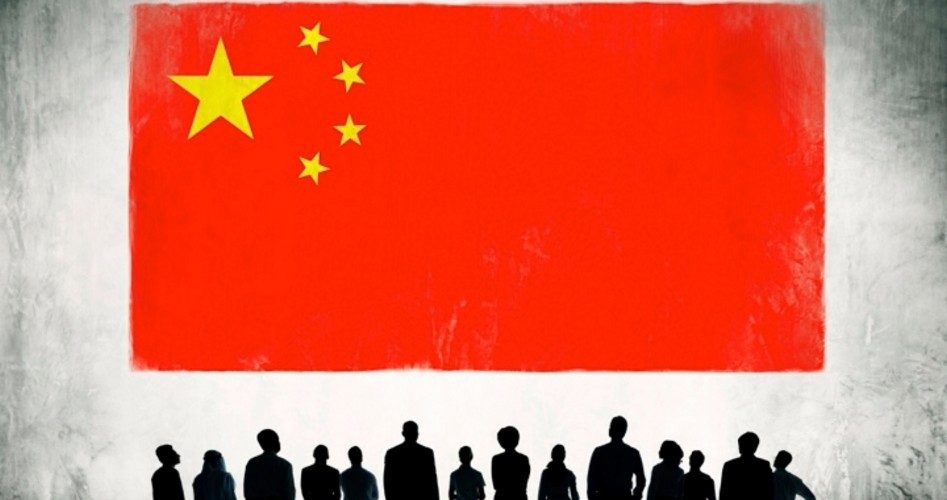
Supporters of the World Trade Organization (WTO) celebrated China’s entry into it in 2001 by claiming that the move not only would create U.S. jobs and increase U.S. exports to China, but would also persuade China’s communist leaders to integrate into the world of sovereign nations and abide by global rules of fair play and free markets. It was sold as a way to move the Chinese economy away from its communist rule and toward a freer private capitalist system.
Instead, said the authors of a study by the Economic Policy Institute (EPI), “China has continued to engage in unfair trade practices which have limited the growth of U.S. exports” and have cost the United States an estimated 3.4 million jobs since 2001. The authors added: “China’s trade-distorting practices, aided by China’s currency manipulation and misalignment and its suppression of wages and labor rights, resulted in a flood of dumped and subsidized imports that greatly exceeded the growth of U.S. exports to China.”
Over time, this has resulted in the growing trade imbalance between China and the United States to the point where that trade deficit exceeds half a trillion dollars a year.
Those job losses were mostly in the U.S. manufacturing sector, which, prior to China’s entry into the WTO, was the envy of the world. But cheap Chinese labor reduced the demand for domestically produced goods made by American workers, resulting in job losses across every state and congressional district, according to the EPI.
As Rich Lowry noted, writing for National Review:
China’s ascension to the World Trade Organization nearly 20 years ago has failed in its large-scale strategic objectives. It hasn’t created a liberalizing regime or a free-market economy in China; in fact, it hasn’t even created a China ready and willing to abide by the norms of free trade.
The regime of Xi Jinping hasn’t been pushed toward democratic reforms by a rising middle class. China still champions state-led, rather than market-led, capitalism. And it takes advantage of the WTO, using non-tariff barriers and industrial policy, to push [its] mercantilist policies….
There is no doubt that China’s practices have harmed the U.S. manufacturing sector, and that Beijing works to block higher-value-added exports from the U.S. and is pursuing a comprehensive strategy to dominate in advanced industries.
Lowry misses the larger point, according to Gordon Chang, author and frequent guest on the topic. China doesn’t want to just “dominate in advanced industries,” it wants to dominate the world. In an interview on Breitbart News Tonight in March, Chang described China’s present leadership as pursuing a geopolitical ambition of “world domination.” That leadership, said Chang, views China as “the only sovereign state in the world.”
Chang added:
China’s not just content with the world as it is; it actually wants to overthrow the international system….
There certainly is a willful blindness [that] cuts across the U.S. political spectrum … where American leaders have sought to integrate China into the international system, really believing in the end that China would be more like us [and] become democratic [and open up] free markets.
The damage done to the American economy by the policies implemented by China following its entry into the WTO has been massive, according to the EPI. For instance,
• The growth of the U.S. trade deficit with China between 2001 and 2017 was responsible for the loss of 3.4 million U.S. jobs;
• The growing trade deficit with China has cost jobs in all 50 states and in every congressional district in the United States;
• The trade deficit in the computer and electronic parts industry grew the most [with] 1.2 million jobs lost … in the industry;
• Surging imports of steel, aluminum, and other capital-intensive products threaten hundreds of thousands of jobs in key industries such as primary metals, machinery and fabricated metal products; and
• Global trade in advanced technology products … is dominated by China … including … other sectors such as biotechnology, life sciences, aerospace, and nuclear technology.
Chang lauded Trump’s much-different and firmer approach to China’s plan for world hegemony:
[The Trump administration’s] national security [and] national defense strategies … are clear indications that they see China in a very different light….
We have a long way to go.… We have to remember that China is posing an existential challenge to our way of life. It’s not only acting more belligerently; it’s trying to attack democracy [and] our society, and it’s been quite successful.
An Ivy League graduate and former investment advisor, Bob is a regular contributor to The New American magazine and blogs frequently at LightFromTheRight.com, primarily on economics and politics. He can be reached at [email protected].
Related articles:
Chinese Economy Slowing Down, Government Denies It
Trump’s Tariffs Are Biting China
Chinese Communist Propaganda Piece in Iowa Paper Could Backfire



